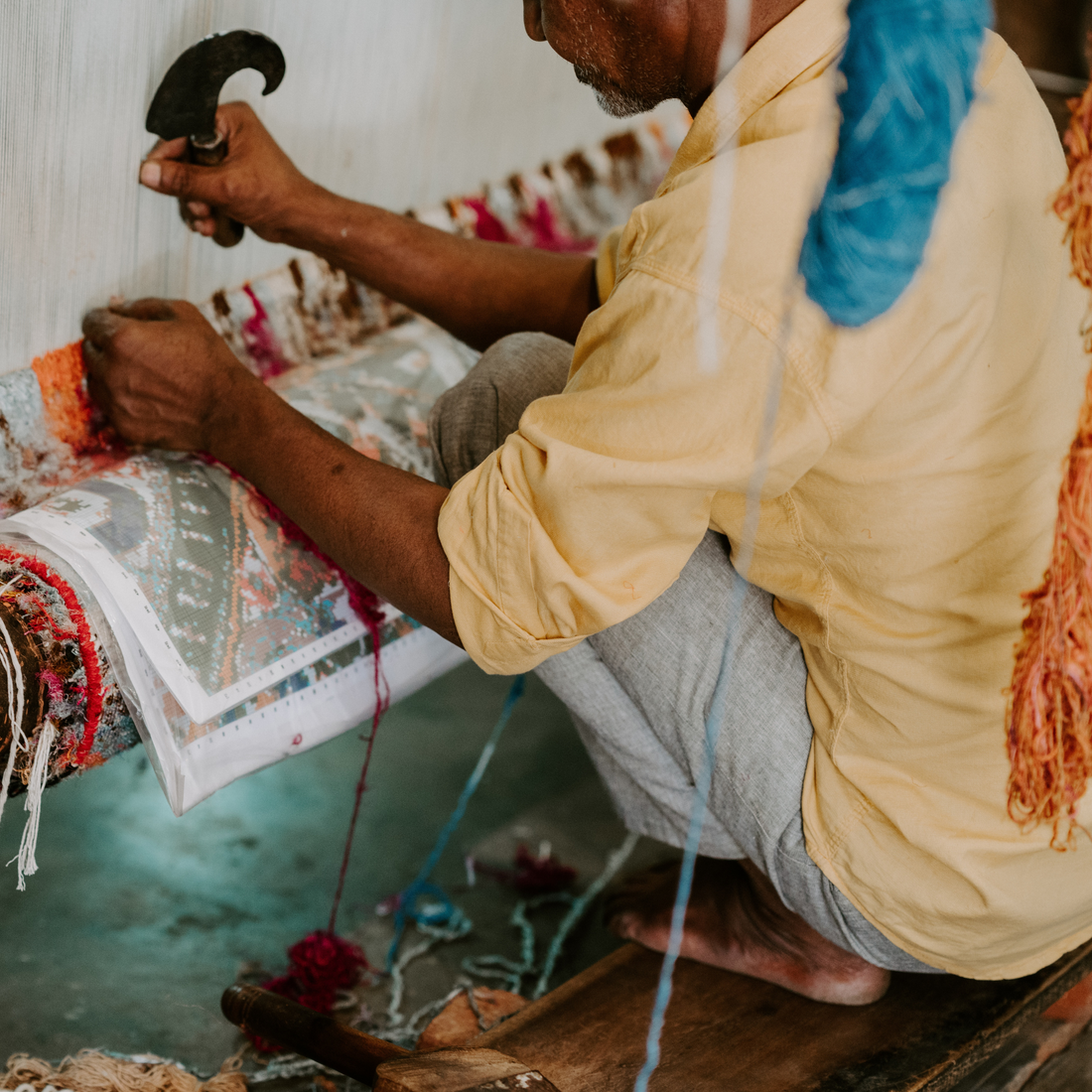
Why is Fair Trade important?
What is Fair Trade?
Fair Trade (or fairtrade) is a way of doing business such that it supports better trading standards, wages for producers and workers in developing countries and invests in the development of these communities. It promotes equitable opportunities for all, and help to reduce social issues like poverty. By supporting Fair Trade, consumers make a difference and invest in a more sustainable future.
The opportunity for Fair Trade business model extends to many business and supply chains. Just to name a few, this ranges from food, fashion, home decor, furniture to home furnishings. This article aims to answer the question "Why is Fair Trade important?" by presenting thoughts, facts and figures.
In short, fair trade is important to address the following
- Human Impact - Modern Slavery, Purchasing practices & Working conditions
- Environmental Impact - Sustainable, Eco-friendly options
Human Impact - Modern Slavery, Purchasing practices & Working conditions
As per International Labour Organisation, 49.6 million people were living in modern slavery in 2021, of which 27.6 million were in forced labour. Most of these figures come from the exploitation by businesses. Economic downturns, and deterioration of working condition in the workshops and factories fuel modern slavery. Banerjee (2021) has argued that modern slavery is ‘an enabling condition of global neoliberal capitalism’. Giving a voice to the workers and listening & acting on their feedback is an important step in this direction. While many big firms do this to some extent, as a consumer it is important to question if those firms are aware of the workers employed by their contractors and sub-contractors and of the working conditions they are subjected to. Often, businesses lose sight of this especially when they are in growth phase.
Below is a quote from a stakeholder working in the textile or garment industry summarizing the impact of COVID-19. This has been noted in the report published by Fair Trade Advocacy Office in collaboration with the University of Portsmouth.
“The garment industry has suffered and workers have suffered, wages fell, very few factories paid even 50 percent of the wage. So, the chances of workers ending up in a slavery kind of condition was very high. They did not get the support from the factory management during lockdown and still now it is not there. The workers have suffered hugely, how much of this is seen or appreciated higher up the supply chain, I can’t see this. Clearly frameworks and codes just stopped being adhered to as soon as the economic realities hit.”
Unfair purchasing practices and poor working conditions have adverse impact on the suppliers and makers. The former includes setting up of prices, payment terms, penalties on delays which are often out of the maker's control, delay or lack of communication & transparency in design specifications, sample approvals, order volumes. The latter includes long working hours, lack of lunch and toilet breaks, and imposition of unreasonable production quotas per worker. Sometimes the issues do not only extend to the makers but to the staff as well. This was recently captured by SMH in their story of 324 offences of underpaying by the Australia’s largest specialty fashion retail group.
On the other hand, Fair trade businesses always keep these factors on their radar. Fair trade businesses are subjected to audit by either their local Fair Trade authorities (like Fair Trade Association of Australia & New Zealand) or the World Fair Trade Organisation. This ensures that the 10 principles of Fair Trade are always met and adhered to. Here, at Aksa we regularly meet our artisan producers and artisans to increase the visibility and the responsiveness to the artisans needs & wants. It also keeps the dialogue open leading to more transparency and exchange of ideas. Our fair trade producers often conduct workshops to increase the production capacity of an artisan group by adopting efficient and safer practices that can be best leveraged by that group. For example, this may be the replacement of clay kilns with better technology which helps aritans produce more in same time, reduces waste or defective products, less smoke and safer conditions.
Environmental Impact - Sustainable, Eco-friendly options
Humans and environment are not separate. Thus, it is in our best interest to move our business models on the sustainable ways as much as possible and as quickly as possible. Pressure from consumers and stakeholders may make some businesses to greenwash their marketing but claims are not made by the Fair Trade businesses since they uphold these principles in their business model. Recycling, upcycling, use of sustainable materials are all part of this social & economical movement. As more and more consumers demand sustainable fair trade products, the sales for fair trade items is increasing. As per the ‘Ethical Markets Report 2021’ report, sales in UK jumped 14% for fairtrade food items in 2020.
Conclusion
Building mutual respect, trust, transparency and equality in supply chain should form the core of a business. There are many fair trade medium and small businesses which are showing that this model works. It can be scaled to make a bigger impact if the enterprise playing fields is leveled by the big giants operating in each sector and on the perseverance & pressure of the conscious consumer of today.
